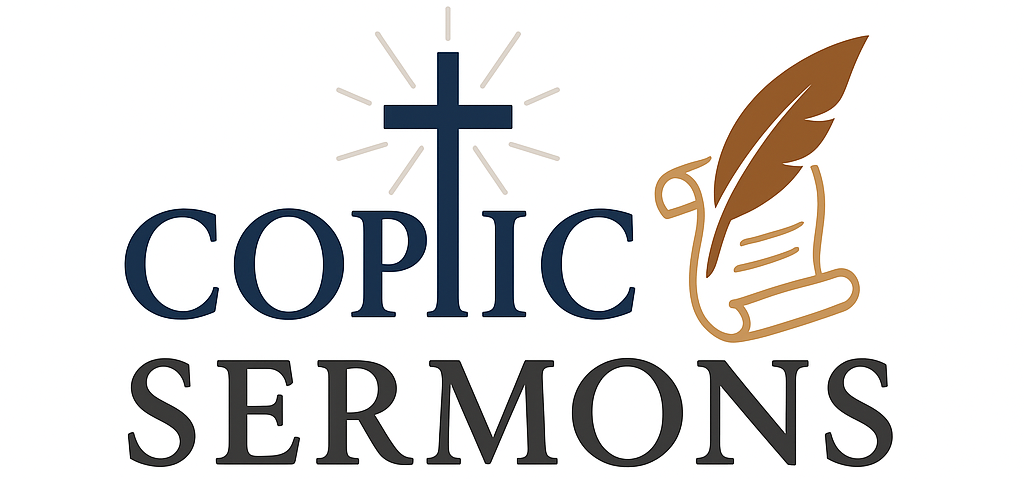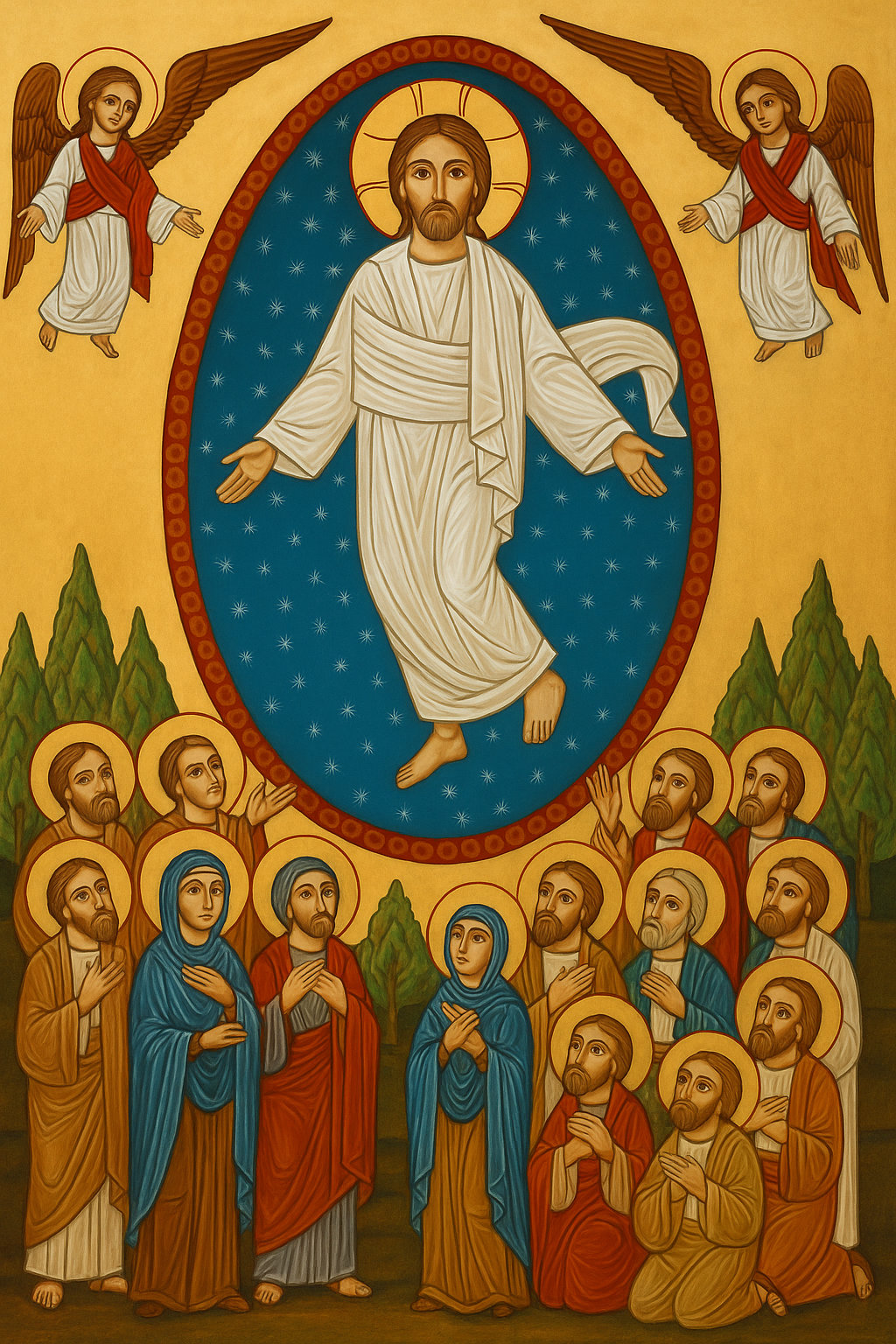How Important is the Ascension of Christ?
In the Name of the Father, and the Son, and the Holy Spirit, One God. Amen.
May the blessing of the Father who calls us and His Only Begotten Son Jesus Christ who saves us, and the Holy Spirit who sanctifies and transforms us be with us all,
that we may hear His word and bear fruit—thirty, sixty, and a hundredfold. Amen.
I want to begin by wishing all of you a blessed Fifty Holy Days, where we celebrate the Lord’s Resurrection. Even now, as we come closer to the end of these joyful days, we prepare to celebrate the blessed Feast of the Ascension of our Lord Jesus Christ. Today, let us take a moment to meditate on why the Lord’s Ascension is considered such an important feast in the eyes of the Coptic Orthodox Church.
To understand its importance, we must step back and see the Ascension as part of God’s breathtaking and sacrificial plan for all of us—a divine plan of love, salvation, and restoration.
1. A Sacrifice Only God Could Offer
Let us turn to the Prophet Malachi and read his prophetic rebuke:
“A son honors his father, and a servant his master. If then I am the Father, where is My honor? And if I am a Master, where is My reverence? Says the Lord of hosts to you priests who despise My name. Yet you say, ‘In what way have we despised Your name?’ You offer defiled food on My altar… And when you offer the blind as a sacrifice, is it not evil? …Offer it then to your governor! Would he be pleased with you?” — Malachi 1:6–8 (NKJV)
Humanity was never able to offer a perfect and acceptable sacrifice. Our offerings were always defiled, incomplete. But the Trinity, in infinite love, gave the only perfect offering: the Lord Jesus Christ, the incarnate Word of God.
2. The Ascension is Part of Salvation
The full work of salvation includes not only the cross but the entire journey of Christ: His incarnation, baptism, ministry, betrayal, crucifixion, death, resurrection, and Ascension.
The Ascension is the final step in this divine mission—its glorious climax. It completes the path of reconciliation. Our Savior did not merely rise from the dead; He rose into the heavens to seat our humanity with the Father.
3. Seated at the Right Hand—for Us
What did St. Stephen see in Acts 7 as he was being stoned?
“But he, being full of the Holy Spirit, gazed into heaven and saw the glory of God, and Jesus standing at the right hand of God.” — Acts 7:55 (NKJV)
He saw what you and I now cling to in hope: Christ in the flesh, at the right hand of the Father. This is not poetic symbolism—it is a mystery of glory. By taking our humanity into heaven, Christ made it possible for us to one day follow Him. His words in John 14 were not metaphorical, but concrete:
“I go to prepare a place for you.” — John 14:2 (NKJV)
He rose so that we might rise. He ascended so that we too might ascend.
4. What St. Cyril Taught About the Ascension
“For in times of old, heaven was utterly inaccessible to mortals, and no flesh yet had ever traveled that pure and all-holy realm of the angels. But Christ was the first who consecrated for us the means of access to himself and granted to flesh a way of entrance into heaven. He did this by presenting himself as an offering to God the Father… and by presenting himself as the first human being that ever appeared in heaven.… He has presented himself therefore as man to the Father on our behalf so that he may restore us again, as it were, to behold the Father’s face.” — St. Cyril of Alexandria, Commentary on the Gospel of John 9.21
St. Cyril reminds us: the Ascension was not for Christ’s sake—it was for ours. He presented Himself as man before the Father to restore our sight, our communion, our inheritance. His presence there is a promise to us.
5. A Creed of Hope
That’s why every Orthodox believer, every day, proclaims in the Creed:
“Who for us men and for our salvation came down from heaven… and on the third day He rose from the dead, according to the Scriptures. Ascended into the heavens, He is seated at the right hand of His Father.”
Why did He ascend? For us and for our salvation!
6. What It Means for Us Today
The Ascension is not a feast of theological memory. It is a feast of personal hope. Today, we can look to heaven and say with confidence: “Through Your Ascension, O Lord, You have prepared a place for me to dwell with God for all eternity.”
So let your heart be lifted up! In the liturgy, in your struggles, in your sufferings—know that Christ has not only overcome death, but He has lifted humanity to divine heights. Let us live in a way worthy of that calling, seated with Him in the heavenly places (Ephesians 2:6).
May the Lord bless us, transform our hearts and minds, that our homes may stand on the Rock, our hands serve in the harvest, and our hearts long for Heaven. Amen.

